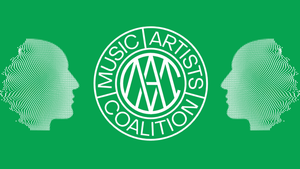Following last week’s big announcement that Universal Music has agreed a settlement and licensing deal with AI company Udio, the Music Artists Coalition in the US has raised a number of concerns and asked various questions about what the deal actually involves.
MAC wants clear commitments from the majors as they start signing these big AI deals that artists will have control over how their music is used in the context of AI, and that they will be fairly compensated from that use. It also wants clarity on how the deals will be structured and managed day-to-day.
The organisation’s Executive Director Ron Gubitz says that “the music industry is at a crossroads” and decisions being made as these AI licensing deals are negotiated “will shape how music gets created, distributed and monetised for decades to come”. Artists therefore need to be part of that process, which is “exactly why MAC exists - to ensure artists have a seat at the table when those decisions are made”.
Veteran artist manager Irving Azoff, who sits on the MAC board, adds that, while “every technological advance offers opportunity”, capitalising on those opportunities must not “come at the expense of the people who actually create the music - artists and songwriters”.
“We've seen this before”, he goes on, alluding to the music industry's previous big digital deals. “Everyone talks about ‘partnership’”, he says, “but artists end up on the sidelines with scraps. Artists must have creative control, fair compensation and clarity about deals being done based on their catalogues”.
The music community is more or less aligned when it comes to the obligations of tech companies using existing music to train generative AI models: they must first get permission from the relevant creators and rightsholders. Udio didn’t do that when training its original music generating model, which is why all three majors sued the AI start-up for copyright infringement, with the support of much of the music industry.
But last week Universal settled its lawsuit against Udio at the same time as agreeing a licensing deal covering a new version of the AI platform that will launch next year.
Once record labels and music publishers start doing licensing deals with AI companies, divisions potentially appear within the music community. Will labels and publishers get explicit consent from artists and songwriters before allowing their music to be used in AI training? And how will music creators control and earn from that usage? Currently there is very little clarity on how any of that will work.
Universal CEO Lucian Grainge did tell his employees that the major would seek explicit consent whenever an artist’s voice is imitated in an AI-generated track - and when AI reworks or mashes up existing songs. It seems both of those things will happen with the new Udio service, and the AI company’s CEO Andrew Sanchez talked a lot about artists formally ‘opting-in’ during a Billboard interview last week.
However, very little detail is known about how the Udio deal will work from an artist perspective. “Artist opt-in sounds promising”, Gubitz goes on, “but participation without fair compensation isn’t partnership; it’s just permission”. Artists “create the work that makes these AI systems possible”, he adds, so “they deserve both control over how their work is used and appropriate compensation for its value generation”.
MAC says that both AI companies and their licensing partners in the music industry should ensure that the following three principles are delivered by any music AI platform…
Artist consent: The original music creators need meaningful control over if and how their work is used to train AI systems.
Fair compensation: Artists must share meaningfully in this revenue, with splits that reflect the fundamental value of their creative work.
Deal and data clarity: Artists need clear visibility into the deals being struck and how their work is being used by the platform.
It also asks a number of questions about Universal’s settlement with Udio over past copyright infringement, and how the new licensed service will work.
For starters, was settlement money paid? And assuming so, how will that be distributed to artists?
Moving forward, how do artists actually control what uses they authorise? And what happens when multiple songwriters or performers on a single song disagree about participation?
And what percentage of revenue from these AI deals goes to artists versus the label?
MAC concludes by saying that it “will continue working with artists and allied organisations to establish clear principles for ethical AI in music creation, advocate for frameworks that protect artists’ rights, and ensure fair compensation”.

